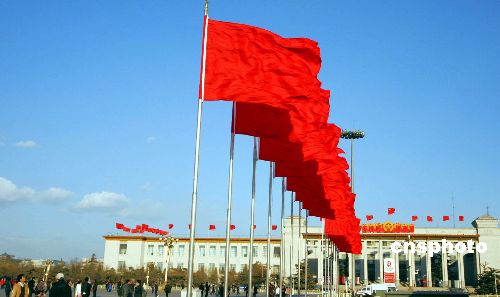The keys to China's success
- By Yang Guangbin
 0 Comment(s)
0 Comment(s) Print
Print E-mail China Daily, September 30, 2014
E-mail China Daily, September 30, 2014
|
|
|
The institutional system and decision-making capabilities of democratic centralism have proven to be the country's advantage. [By Wu Mangzi/CNS] |
This year marks the 65th anniversary of the founding of the People's Republic of China, the 60th anniversary of the establishment of people's congress system and the 65th anniversary of the establishment of the Chinese People's Political Consultative Conference. In the past 65 years China has developed rapidly and has made great achievements. Democratic centralism is the core mechanism of the China model, the key to the China miracle, and China's advantage compared with other major developing countries.
China is still a developing country, and it lags behind the developed countries in many aspects. But it would be wrong to always attribute the developed countries' achievements to their democratic system. It's also wrong to deny China's success because of some partial setbacks or mistakes and to blame these on China's democratic system.
Democratic centralism is an institutional system as well as a decision-making model. Democratic centralism is an organization principle of the governing Communist Party of China, as well as national organizations, which links the CPC and the national mechanism based on the people's congress system.
Under democratic centralism, the decision-making process is first democratic discussion and then consensus on opinions on a democratic basis, which guarantees the decision-making process responds to public opinion to the greatest extent.
Currently there are two major political systems in the world: democratic centralism and representative democracy. If we want to make a comparison between the two systems, we should first make sure the premise of "comparability" holds. In other words, China should be compared with those developing countries that also have a long history, huge population and suffered a long time as a colony or semi-colony.
We can divide all the 12 countries with populations of more than 100 million into three groups. The first contains developed countries such as the United States and Japan, whose development is not due to representative democracy, but freedom of speech, rule of law, a market economy and exploitation of other countries.
The second group contains countries that have turned to representative democracy such as Russia. In the 1990s, the former Soviet Union fell apart and terrorism was widespread. The public called for Vladimir Putin's "controllable democracy", which has enabled Russia to revive.







Go to Forum >>0 Comment(s)